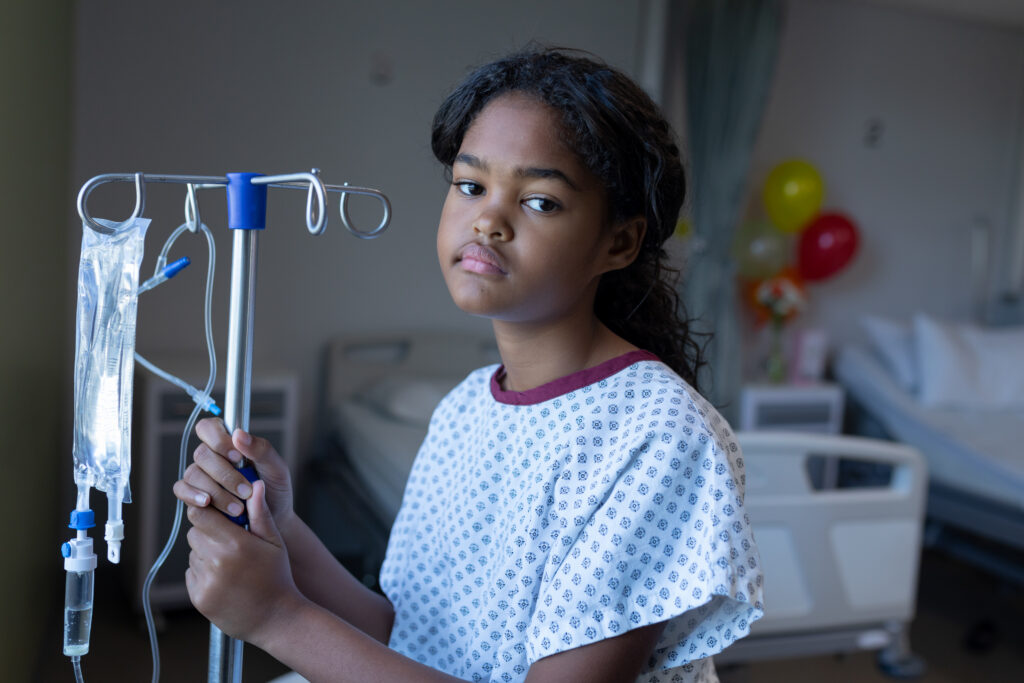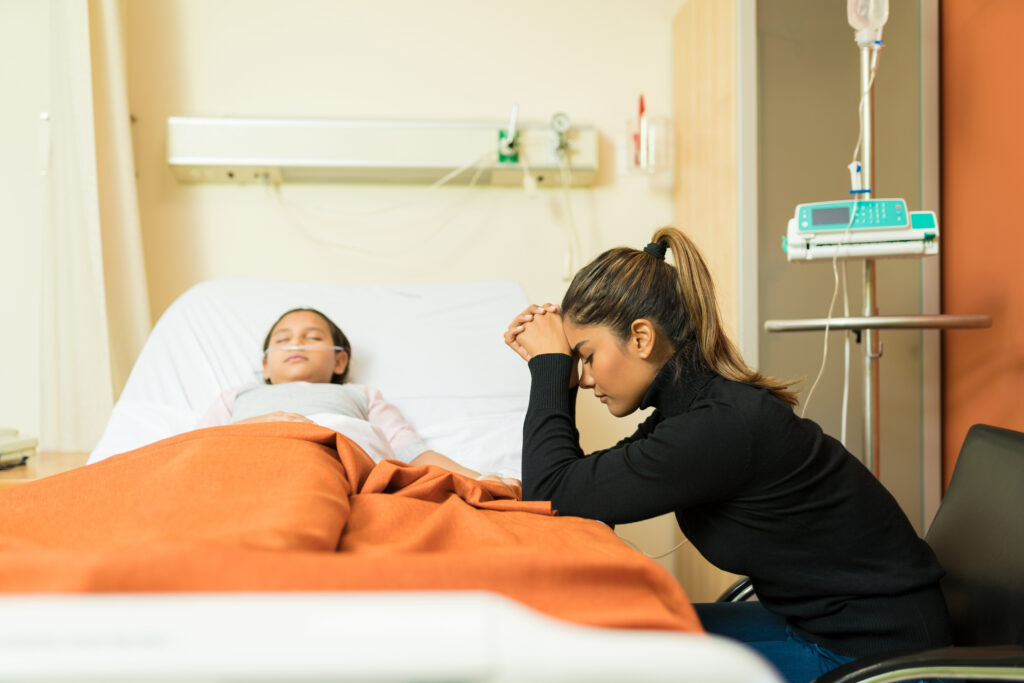The Invisible Wounds: Emotional & Psychological Impact of Child Injury
When a child suffers an injury, our immediate focus is on their physical wounds – the broken bones, the cuts, the visible damage. But at Child & Birth Injury Lawyers we have learned through decades of helping families nationwide, that a physical injury hurts the body, but it also hurts the heart and mind in profound ways. Children, especially, can struggle desperately to understand why something so terrible has happened to them. They might get very scared. They might become intensely sad or angry. This is called emotional or psychological trauma, and it’s often an invisible wound, but one that can be just as devastating, if not more so, than any broken bone.
We understand that these “invisible wounds” require just as much care and attention as the physical ones. They often represent a lifelong journey of healing and adjustment, impacting every aspect of a child’s development and deeply affecting the entire family.
Understanding Fear and Anxiety: Living in the Shadow
After a traumatic injury, fear and anxiety can become constant companions for a child.
- They might develop a deep fear of the specific place where they were hurt, or of certain things that remind them of the accident (like cars after a car accident, or dogs after an attack).
- This anxiety can extend to daily life, making them fearful about going to school, leaving their parents, or trying new activities they once loved.
- This intense worry can be constant, affecting their sleep, appetite, and general happiness. They might become clingy, withdrawn, or irritable, struggling to feel safe in the world again.

The Shadow of PTSD: When the Trauma Lingers
Just like soldiers returning from war, children who go through very scary, life-threatening events can develop Post-Traumatic Stress Disorder (PTSD). It’s a real, often misunderstood, medical condition.
- They might have terrifying nightmares, or sudden flashbacks where they vividly relive the event as if it’s happening all over again.
- They might try to avoid anything that reminds them of the accident – places, people, or even certain sounds.
- This can make them act very differently, becoming irritable, withdrawn from friends and family, or hyper-vigilant, and easily startled.
- Studies show that up to 43% of children and teens experience at least one trauma, and a significant number of those who experience severe physical trauma (like a major accident or burn) develop PTSD. This highlights how common and devastating this condition can be.
Coping with Depression and Sadness: A Heavy Heart
A child might feel very sad, especially if their injury prevents them from doing things they used to love – such as playing sports, dancing, running with friends, or simply playing outside. This profound sadness can lead to:
- Withdrawal from family and friends.
- Loss of interest in hobbies or school.
- Struggling with feelings of helplessness or hopelessness.
- Changes in eating or sleeping patterns. This sadness can be very deep, impacting their desire to engage with the world.

Impact on Self-Esteem and Identity: Who Am I Now?
Beyond the sadness, a significant injury can profoundly affect a child’s sense of self. If they have lasting disabilities or visible scars, they might struggle with their body image and self-perception. They may feel “different” from their peers, leading to:
- Lowered self-esteem.
- Challenges in forming new friendships.
- A struggle with their identity, especially if the injury prevents them from pursuing passions they once had. This emotional journey of coming to terms with a changed body and future is deeply personal and often requires long-term support.
The Emotional Ripple Effect on Parents: Carrying the Burden
Parents also suffer deeply. The emotional toll can be immense and relentless:
- Guilt: “Could I have prevented this?” is a common, agonizing question, even when they know the negligence was someone else’s.
- Anger and Frustration: Directed at the at-fault party, or at the medical system.
- Chronic Worry: Constant anxiety about their child’s pain, future health, and ability to thrive.
- Stress, Anxiety, and Depression: The overwhelming demands of caregiving, endless appointments, and financial strain can lead to severe psychological distress for parents. Some studies even compare the emotional toll on parents of severely injured children to that of combat veterans (Source: Often referenced in psychological and social work literature related to caregiver burden). This stress can have a significant impact on the entire family’s emotional well-being.

Supporting Siblings: The Unseen Challenges
Brothers and sisters of an injured child often experience their own unique emotional challenges. They might:
- Feel overlooked as parental attention shifts significantly toward the injured sibling.
- Feel confused about their sibling’s condition, or even act out as a cry for attention.
- Struggle with feelings of resentment, guilt, or fear. Maintaining a sense of normalcy and ensuring their emotional well-being requires conscious effort and often professional support.
Seeking Help for Emotional Recovery
Just as physical therapy is crucial for the body, professional counseling and therapy are vital for emotional recovery. This type of support helps the child, parents, and siblings process the trauma, develop coping strategies, and manage conditions like PTSD, anxiety, or depression.
At Child & Birth Injury Lawyers, we understand these invisible wounds. When we fight for comprehensive compensation, we ensure it covers not just medical bills, but also the crucial costs of psychological counseling, therapy, and support services for your child and your family. Your emotional well-being matters. If your child has been injured due to negligence, we are here to advocate for every aspect of their recovery, ensuring they have the resources for a healthy heart and mind.













